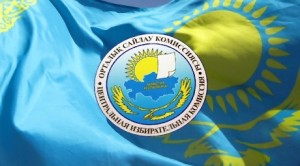ASTANA – The regional administrations (maslikhats) of Kazakhstan elected 16 new senators on Oct. 1 in a process that unfolded largely without incident, reported Central Election Commission (CEC) member Marat Sarsembayev on Oct. 10.
 “[International observers] told us that the evaluation is high and that there are no shortcomings concerning this election. This is their evaluation; these are their words,” Sarsembayev said in an interview with The Astana Times.
“[International observers] told us that the evaluation is high and that there are no shortcomings concerning this election. This is their evaluation; these are their words,” Sarsembayev said in an interview with The Astana Times.
Nearly 400 observers, including 116 international observers, monitored the indirect election in 16 polling stations around the country. The international observers came from the Interparliamentary Assembly of the Commonwealth of Independent States (IPA-CIS), the Shanghai Cooperation Organisation (SCO) and the CIS itself. Representatives from some diplomatic missions in Astana, including the Czech Republic, Thailand and Germany, among others, also took part.
“Our final report says that the election was held in accordance with the international standards and the law of Kazakhstan,” said Farkhad Rakhimov, coordinator of the IPA observers, as reported by Trend.az on Oct. 1. The IPA includes experts from the International Institute of Monitoring of Development of Democracy, Parliamentarism and Protection of Electoral Rights of Citizens of IPA CIS Members, among others.
According to a CEC press release, five appeals were filed during the course of the election, most seeking clarification of legislation governing the election. An acting senator from Kyzylorda challenged the decision of the territorial election commission declaring him ineligible for election. The court considered his appeal but found he didn’t fulfil the requirement to be a resident in the region for at least three years, having never registered, Sarsembayev said.
Nearly all of the 3,279 enrolled electors – the members of regional maslikhats – took part in the election, the CEC said, reporting that more than 98 percent participated in the vote. Maslikhat deputies are not required to vote, Sarsembaev said, but the act is, of course, considered a responsibility of the position.
Of the ballots cast, 12 were declared null and void, Sarsembayev said. This was a better result than in previous years, he noted, saying that there were perhaps 20 in the previous Senate election and more than 200 in the 2008 senate election.
Kazakhstan’s election laws require senate elections to be contested – a ballot may not contain a single candidate. Nine regions saw two candidates compete; three names appeared on the ballots in seven. The biggest margin of victory came in the West Kazakhstan oblast, where Yerbulat Mukayev won with 94.8 percent of the vote.
Though Sarsembayev noted that Senate candidates are not required to disclose their political affiliations, other publications, including The Economist, are reporting that candidates of the ruling Nur Otan party won every seat. Election to the senate is based on regional representation; it is in the Mazhilis that political parties are officially more active.
One woman, the only woman among the 39 candidates who stood for the final election, was voted into office, along with all four incumbent senators who ran. Nine of the other senator-elects were employees of state organisations; two come from Kazakhstan’s business community. The average age of the new senators is 56; four of the new senators are not ethnic Kazakhs.
